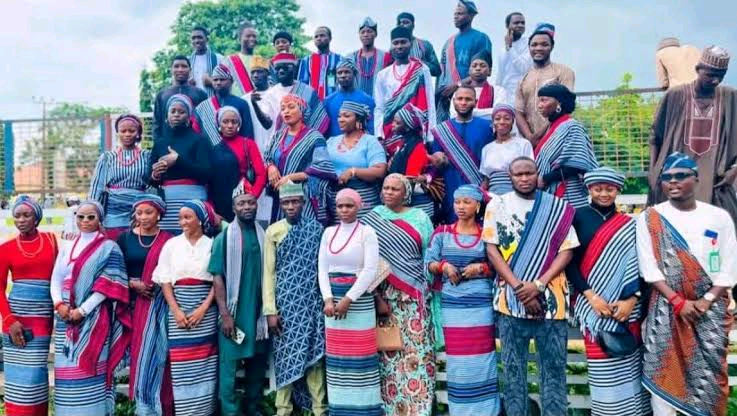Eloyi (Afao, Afo, Afu, Aho, Epe, Keffi)
The Eloyi, also known by various names such as Afao, Afo, Afu, Aho, Epe, and Keffi, are an ethnic group of central Nigeria.
They number about 100,000 people and are related to the Idoma ethnic group.
Geography & Language
The Eloyi (also called Ajiri) are mostly found in the following areas:
- Awe, Nasarawa, and Kokona Local Government Areas of Nasarawa State
- Otukpo Local Government Area of Benue State
As of the year 2000, around 60,000 people spoke the Eloyi language.
The Ajiri language belongs to the Idomoid branch of the Benue-Congo group.
In modern times, many native speakers have adopted Hausa as a second or even primary language.
History
Traditionally, most Eloyi lived within a 15-mile (24 km) range of rocky hills in present-day Nasarawa State.
In 1918, they revolted against British colonial rule and were subsequently forced to leave their homeland.
Today, the Eloyi are scattered across Nasarawa and Benue States, though some have moved back to the original hills.
In 1932, the British administration divided the Eloyi into ten village areas, appointing a head for each. These village heads were not recognized by the Eloyi themselves.
Society
The Eloyi are among the more economically advanced tribes of the Benue Valley.
In the hills, they cultivate:
- Guinea corn
- Cotton
- Yams
- Tobacco
They also engage in weaving and dyeing, producing cloth in high demand for trade.
The Eloyi region holds one of the largest solid mineral deposits in Nasarawa State.
Housing styles differ by location:
- Hills: Round huts with conical thatched roofs arranged around a central courtyard
- Plains: Larger houses built within compounds, with fortified villages
In the plains, they primarily farm and trade dried fish and palm oil for cash.
Organization & Beliefs
Political Structure:
The village is the largest political unit, independent from its neighbors.
Each village is headed by a chief, assisted by a council of elders.The Gado:
Known as the father of the village, the gado is the authority on customs and law, overseeing planting and harvest rites.Religious Beliefs:
Most Eloyi practice traditional religion, centered on the god Owo, symbolized by a white silk cotton tree or a fig tree.
They also worship their ancestors, whose spirits are believed to require food and care.Ritual Practices:
- Masked impersonation of ancestors
- Witchcraft and magic
- Divination with strings
A significant portion of the Eloyi have adopted Islam.
